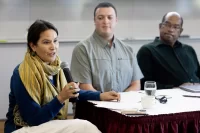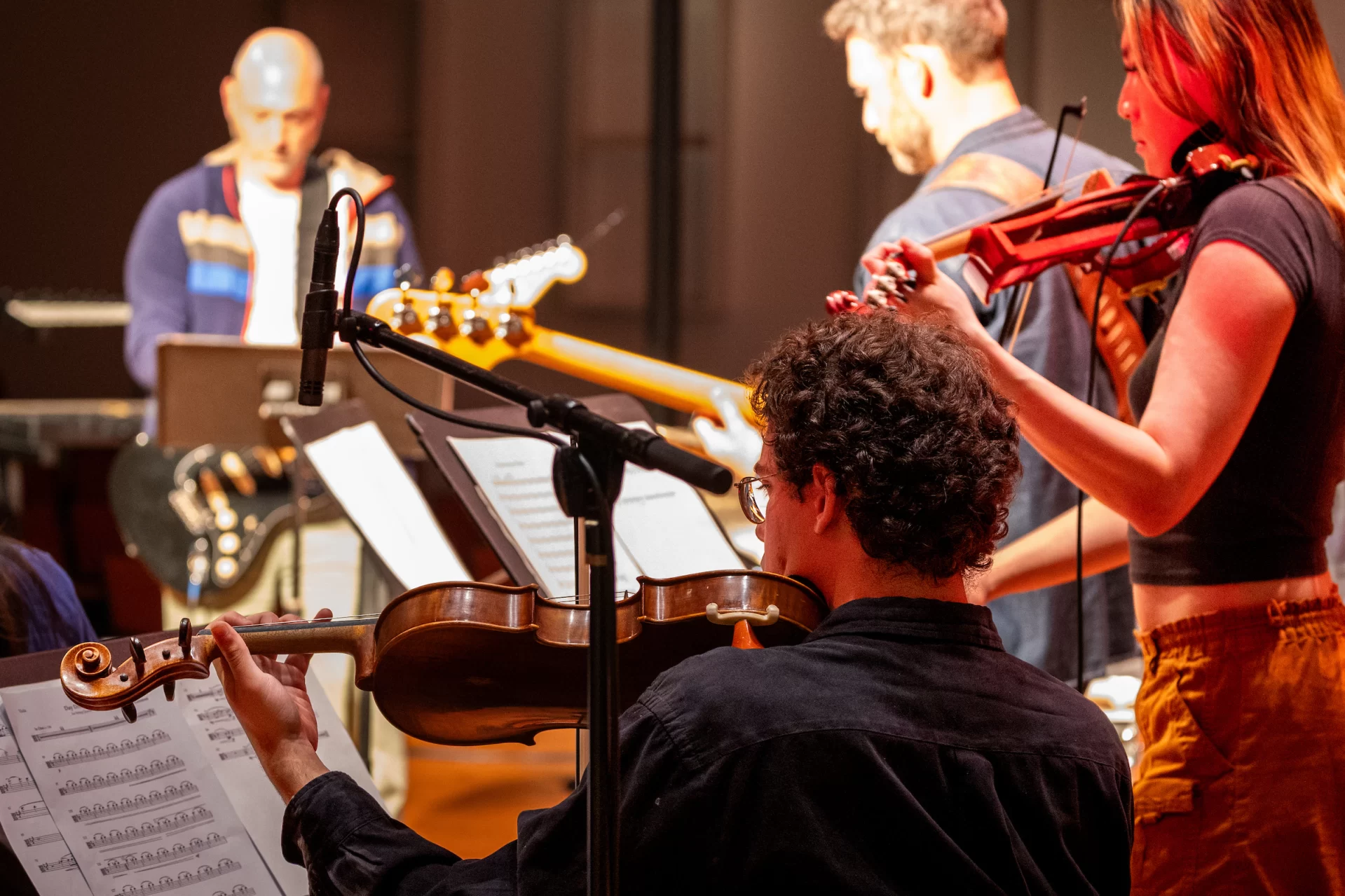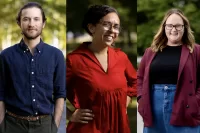
“Gene Clough taught me how to be curious,” said Noah Petro ’01. “I can’t look at an image of data from the moon, especially the far side that he loved so much, without channeling his passion and curiosity.”
Gene Alan Clough, a teacher whose passion and curiosity inspired Petro and many other Bates students during a 38-year Bates career, died Oct. 23 at age 77 from complications of Alzheimer’s disease.
Gene Clough
President Garry W. Jenkins’ announcement of Gene Clough’s passing includes information about services and a Bates memorial gift designation.
“Gene opened a door for me,” said Petro, who is now a project scientist for NASA’s Lunar Reconnaissance Orbiter and its ongoing mission to map and measure the moon.
“He’d always say that he only opened that door and it was up to me to run through it. But he did far more than that: He not only opened the door but taught me and others how the door worked and how to open doors for others.”
Circa 1955: In the Workshop
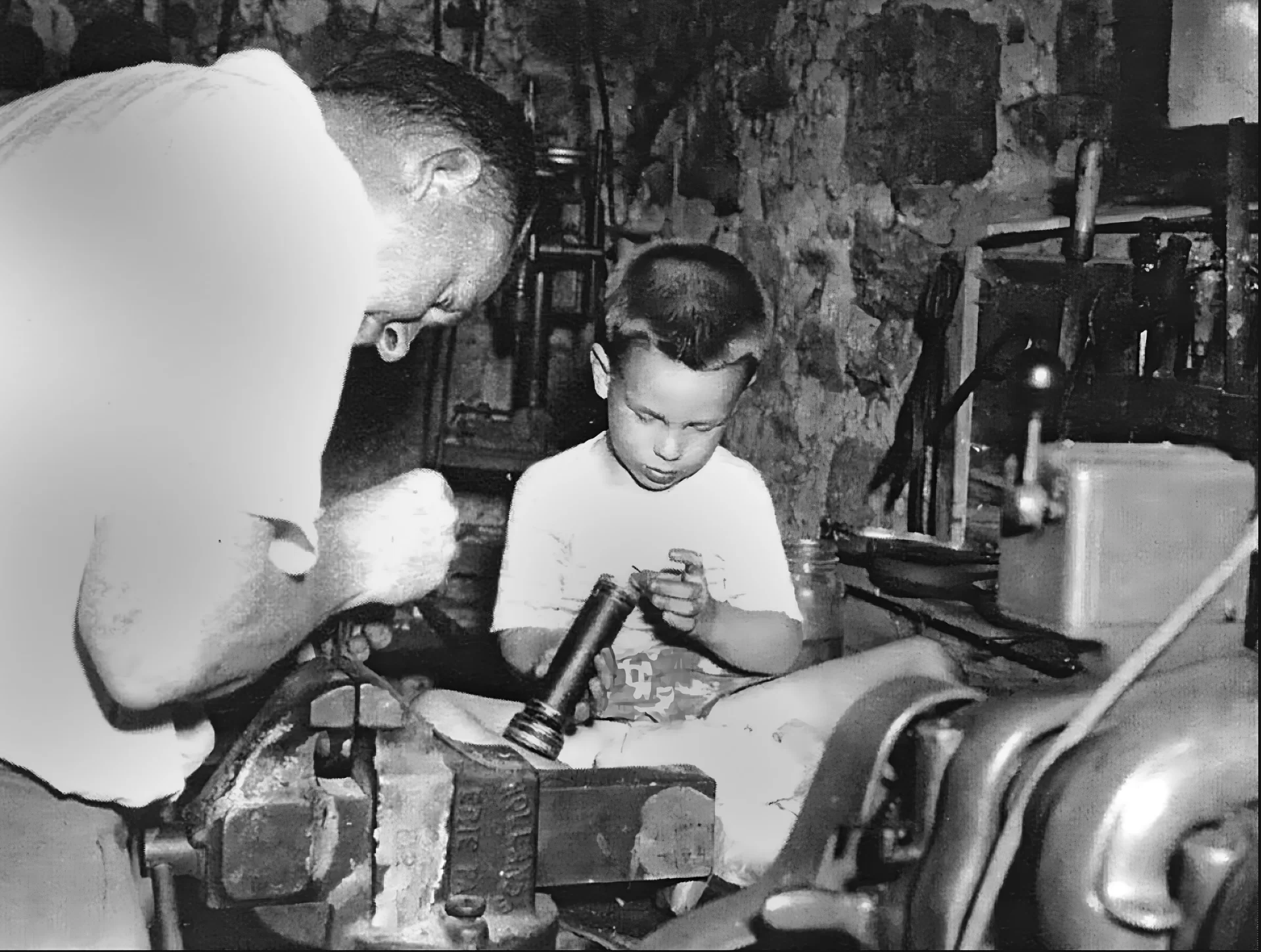
This family photo shows Gene Clough and his father in basement workshop of his father’s father. Clough came from a family of fixers, where the reaction to a broken household item was, “Do we fix, or replace, or get someone else to look at it?”
Clough described his childhood in his memoir, Technology from the Very Bottom.
The family might not have always done the repair, but “we almost always did the diagnosis, and this attitude and ability was supported by a substantial machine shop in the garage. When my junior high school friends would play ball in the streets after school, I could go into the garage and make things out of steel.”
Circa 1968: As an Undergraduate
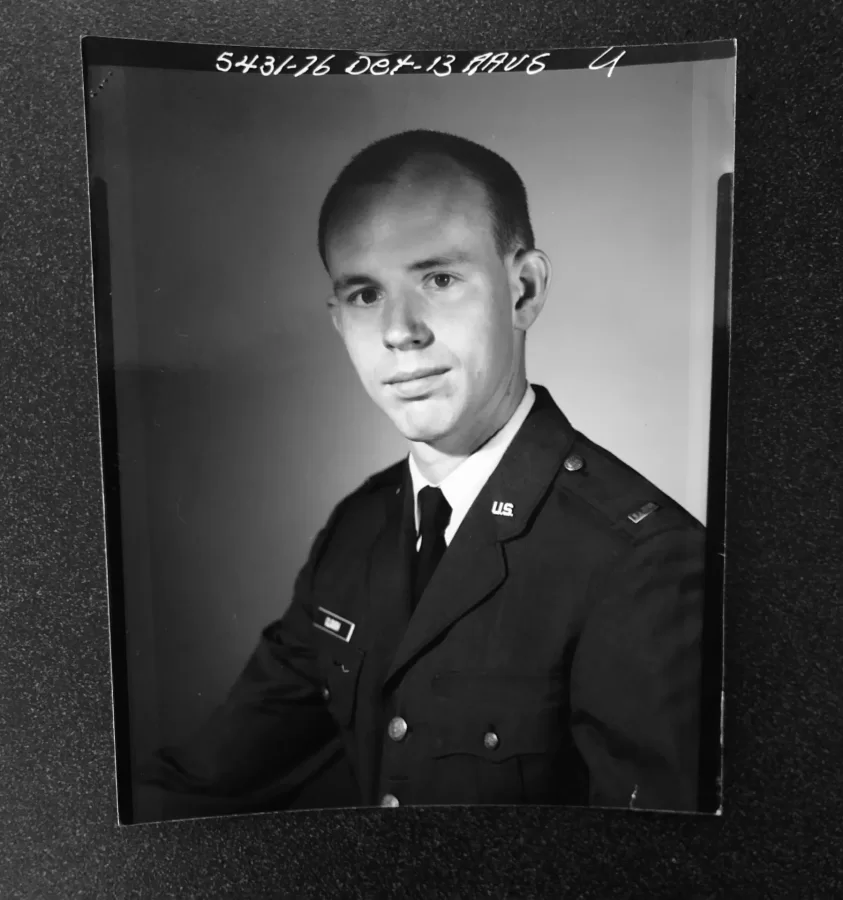
Clough poses for an ROTC portrait while he was an undergraduate at the California Institute of Technology. Clough earned bachelor’s, master’s, and doctoral degrees in physics at Caltech.
1986: Dedicated to documenting Olin
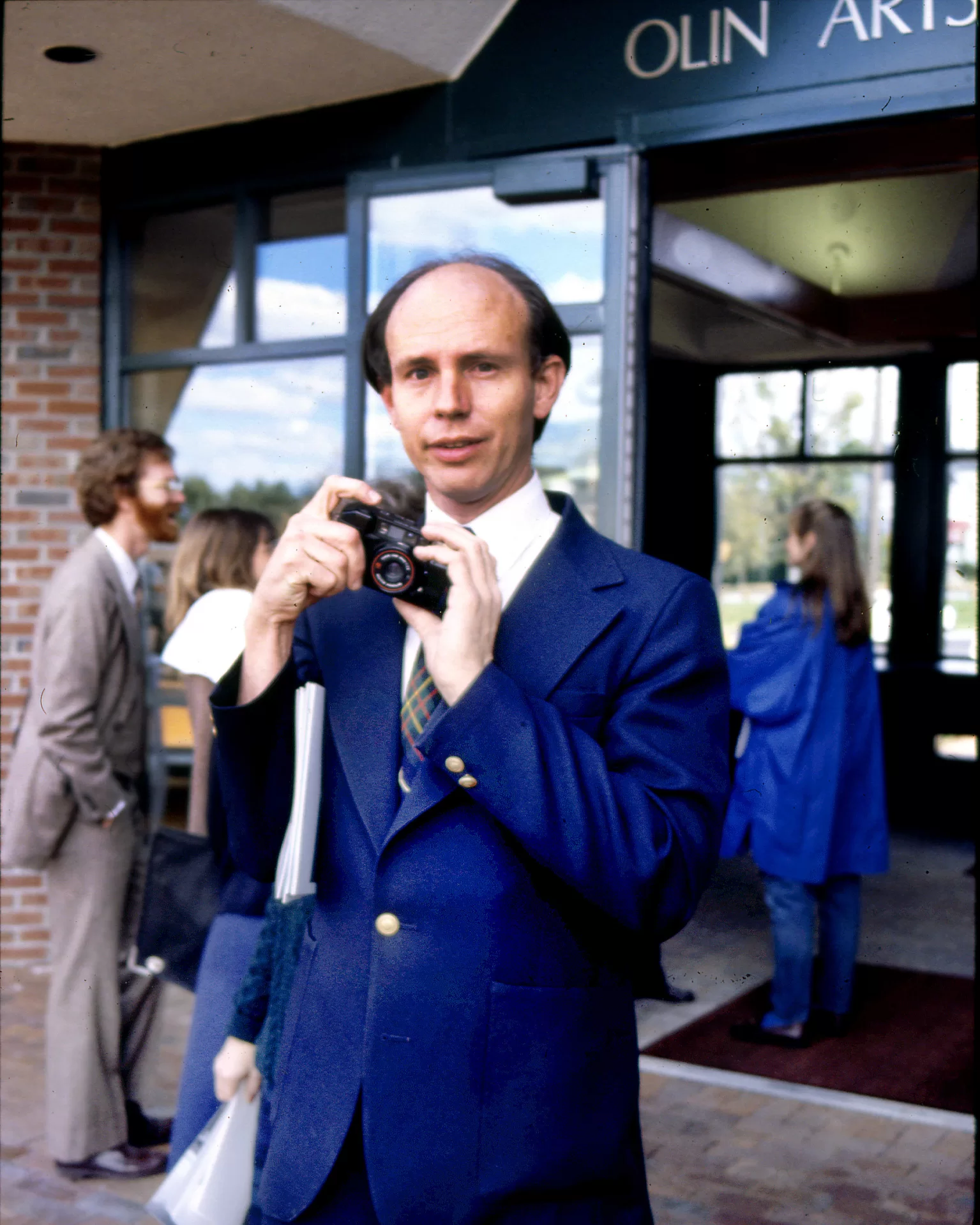
Clough played a key role in the design of the center’s concert hall by offering input on acoustics and technical features.
Inside a Lane Hall storage room that faced the Olin construction site, Clough built an ingenious device to create a time-lapse film of Olin’s construction. The film comprised 48,000 still images captured every 6 minutes from March 1985 to January 1987.
The setup featured a film camera, (Paillard BOLEX H-16 Reflex) and an electric intervalometer that pushed the film camera’s single-frame button while also winding the film to the next frame. A Tork clock system turned the camera off at night and on weekends.
1989: Working with the BCTV
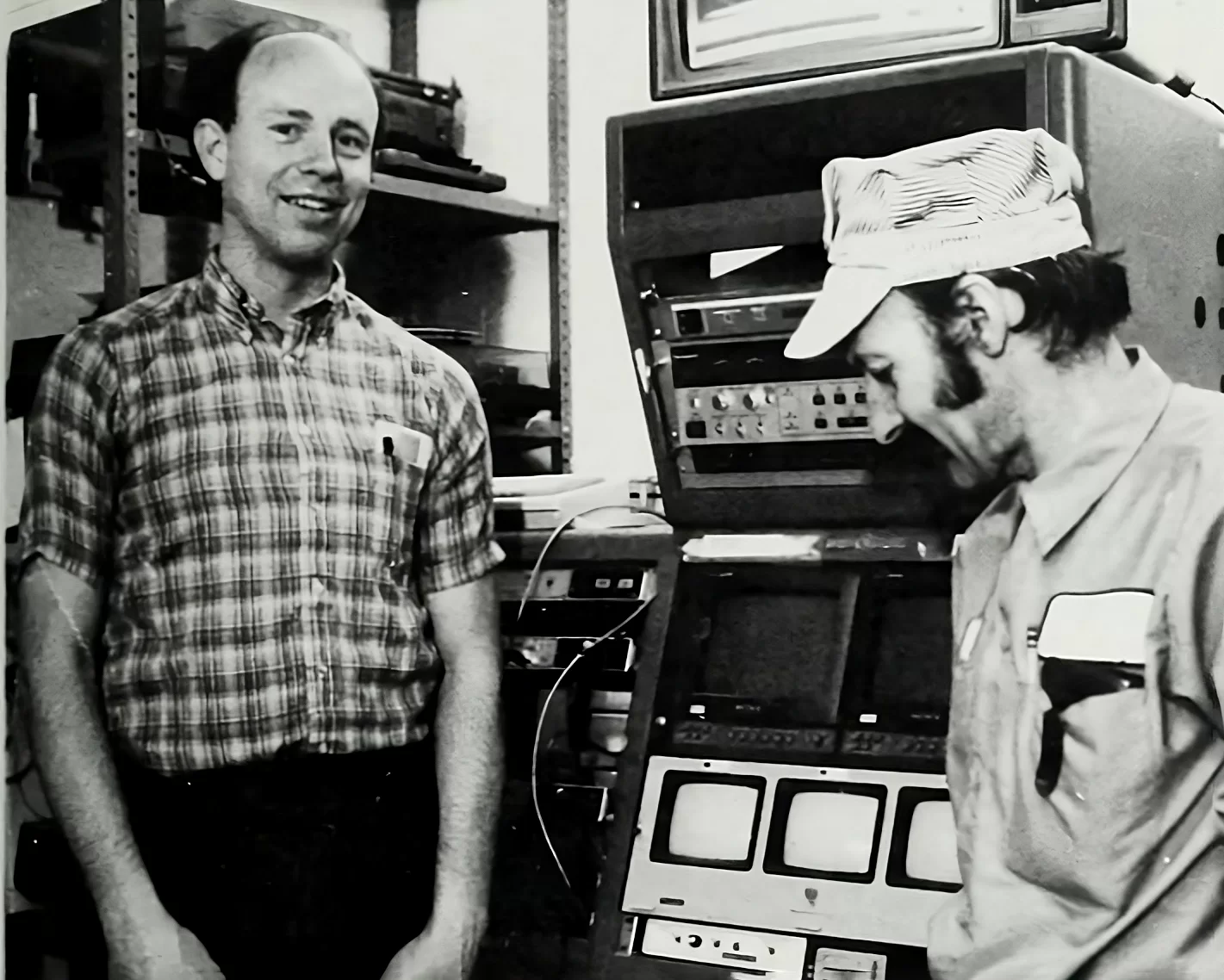
Clough, at left with Ray Viere of Facility Services, served as the faculty adviser to the closed-circuit Bates College Television club beginning in 1988. Legend says that Clough laid much of the cable himself, threading cable through existing underground conduits.
“He was relentless in his dedication to giving students the technology backbone to create and deliver programming,” said Craig Patton ’91. “He crawled into places and got dinged up on our behalf. He was a model advisor to the fledgling BCTV club, always available and supportive but letting us make the decisions, as long as what we wanted to do was feasible.
“The other thing I remember is how much he hated it if we thanked him on air. Which, of course, we did regularly because he deserved our gratitude. Gene Clough was humble, kind, and healthily obsessed with his work. BCTV was a huge part of my college experience, and I’m eternally grateful to him for making it all possible.”
Circa 1990: Capturing video at another event
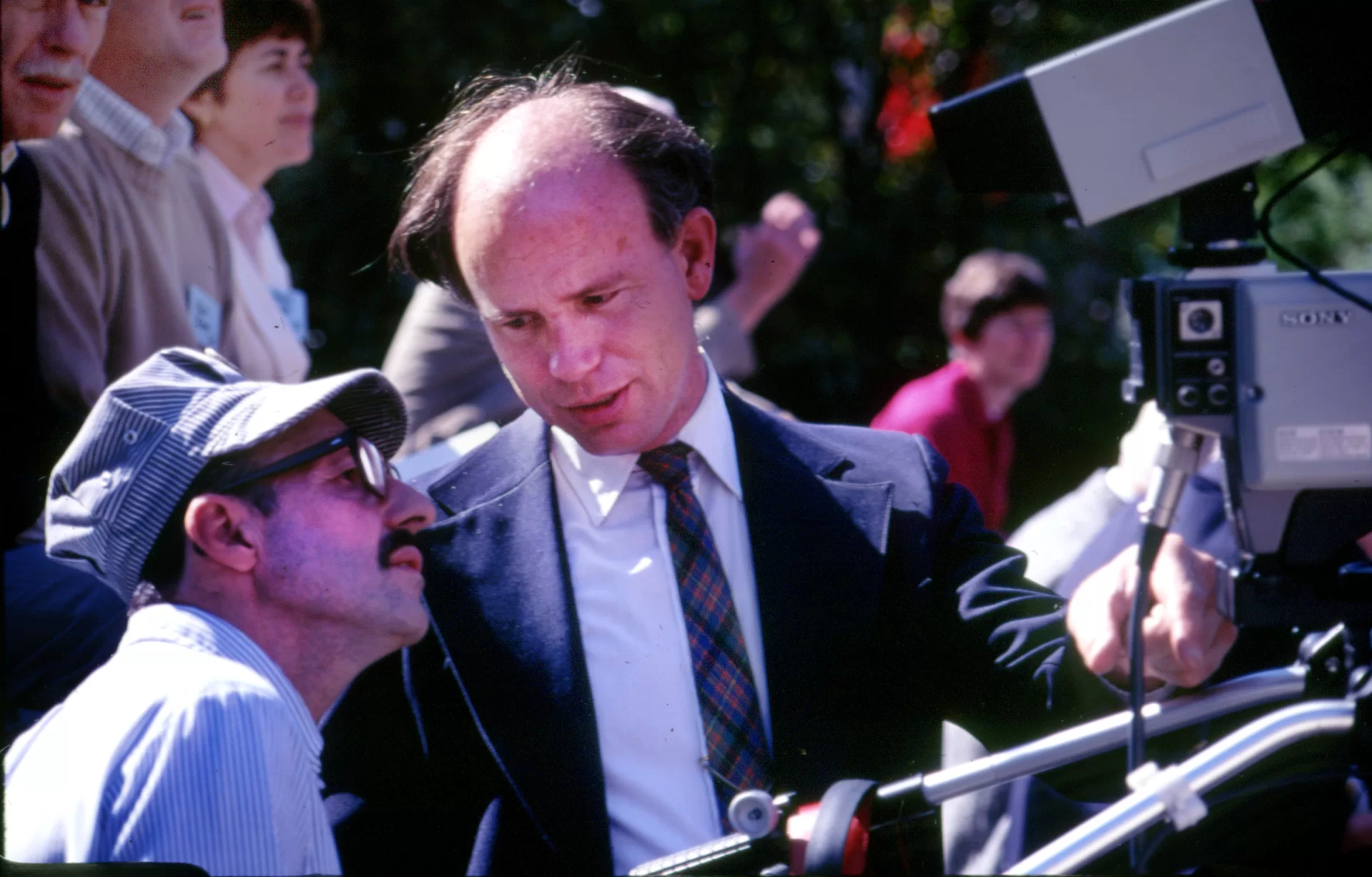
Clough served as director of technical support services, the college’s first such position, from the late 1980s into the 1990s, capturing hundreds of Bates events and performances on video that are now preserved in the Muskie Archives and Special Collections Library.
1998: The Student rates Clough

As Clough returned to teaching after working in audio-visual support, The Bates Student took notice in its “Bates Rates” segment, quipping that it would take small army to replace him as an “uber-techy bad ass.”
2001: Connecting with alumni at Reunion
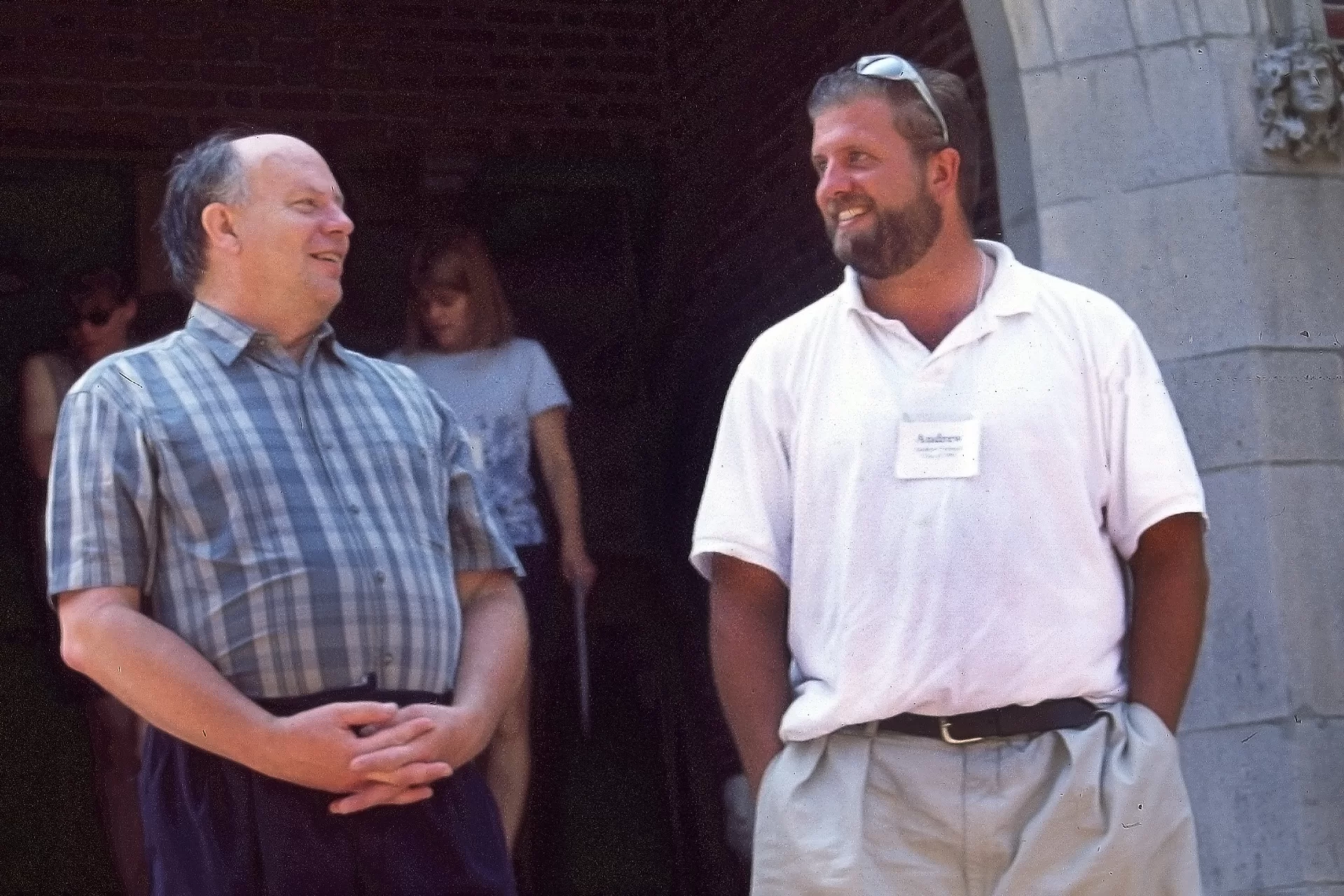
At Reunion 2001, Clough talks with Andrew Stabnick ’91 outside Chase Hall. That year, he received the College Key’s award for faculty and staff. As was noted in Bates Magazine, Clough was “renowned for his seemingly bottomless reservoir of devotion to students and alumni needs:
- Offering his home for families to stay at graduation
- Pulling all-nighters at Reunion to help with setup and programming
- Cooking a Thanksgiving feast (where everything, even the applesauce, is made from scratch) for students in his First-Year Seminar
- Teaching himself Swedish, then teaching a course in it
- Helping students pull coax cable through underground conduits in the early days of BCTV.
Stu Abelson ’97, then president of the College Key, praised Clough for being “what Bates is all about: passion for living, passion for learning, passion for giving back to the community.”
2001: Buckling down

Clough gave this vintage brass belt buckle to Noah Petro ’01 as a gift after Petro’s successful honors thesis defense in 2001.
The buckle commemorates the Viking touchdown on Mars in 1976. Clough had been fascinated with the buckle since working with the U.S. Geological Survey in the late 1970s in Flagstaff, Ariz., where many of the geologists wore the buckle as part of their “uniform.”
Clough secured a dozen of the buckles for his students. “It was Gene’s ambition that his students have part of that legacy, and I’m proud to wear it to this day,” says Petro.
2005: Into the land of machines
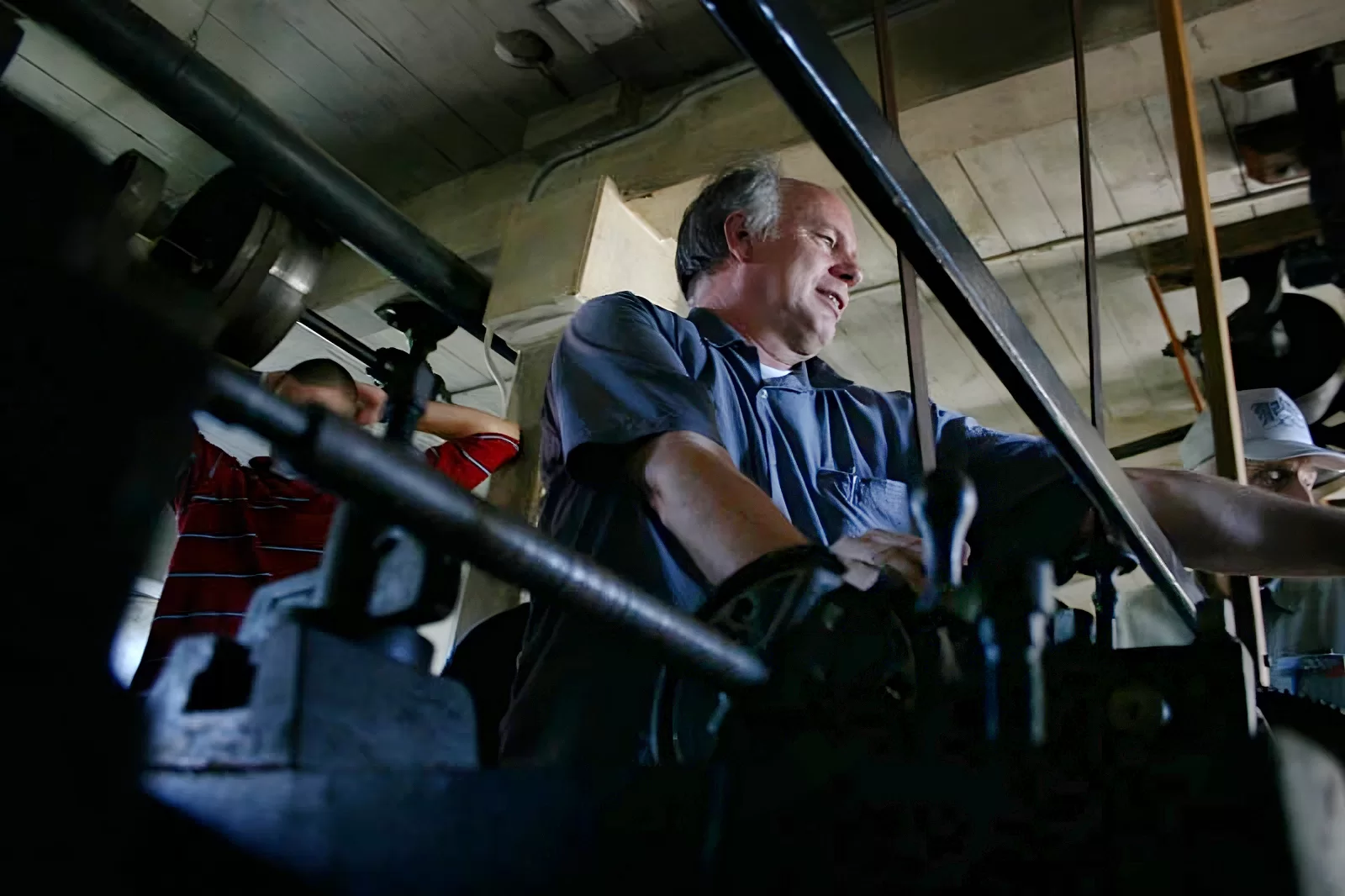
Clough is completely at home amidst the technology and machinery at the Saugus (Mass.) Iron Works, a National Historic Site, during a field trip for his First-Year Seminar, “The Anatomy of a Few Small Machines.”
The course was his way of realizing, in the words of the Bates mission statement, the “emancipating potential of the liberal arts” for his students.
He wanted students to approach technology not as mysterious and unfathomable, but as “something that is an extension of your hands and your mind and for whose operation and performance you can and do assume full responsibility.”
2005: Creating a blast furnace on the Quad
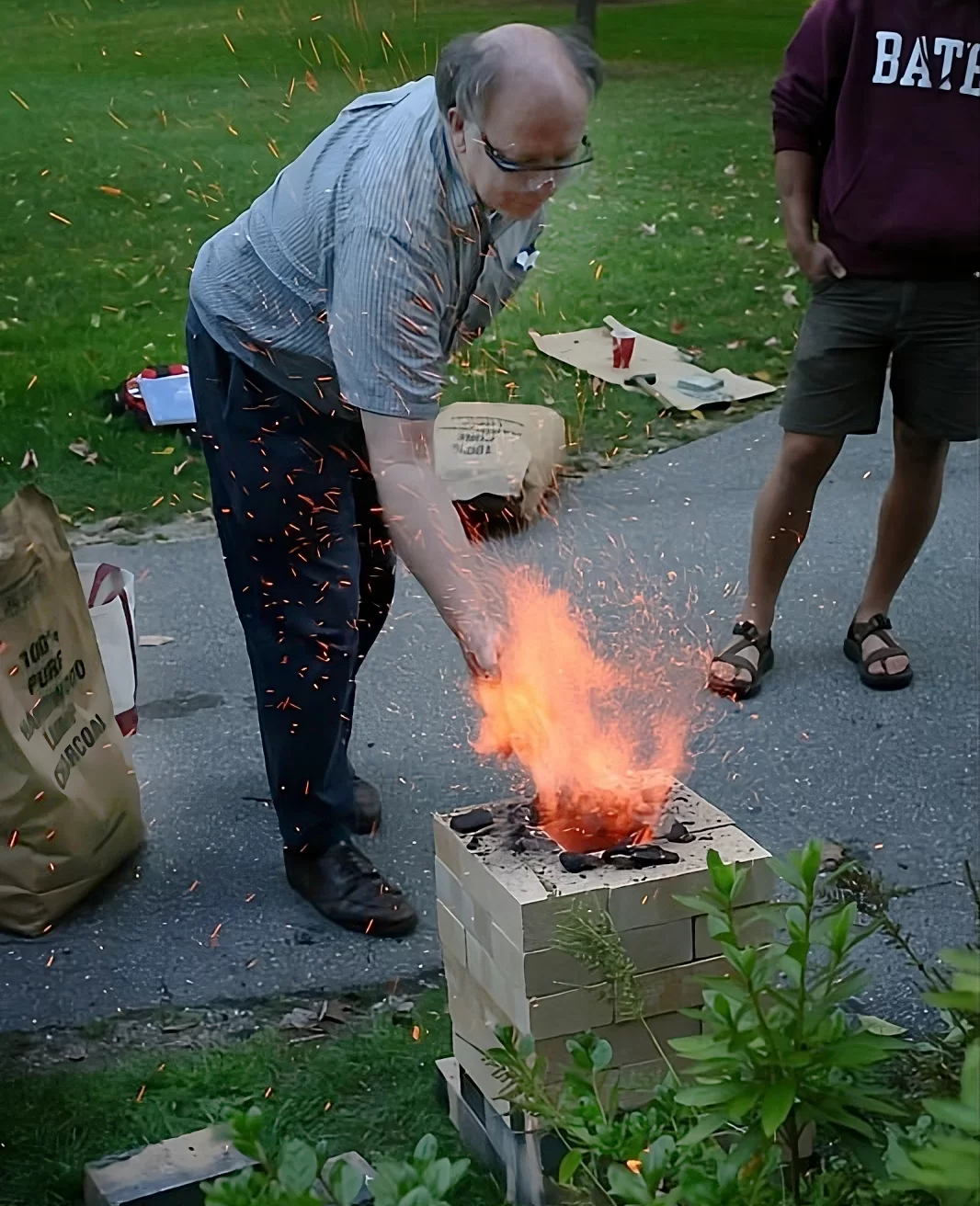
Clough feeds coal to a blast furnace that he and his students built outside Carnegie Science Hall in fall 2005. The project taught students how to smelt copper ore into copper.
Circa 2005: Clough and his iron lung
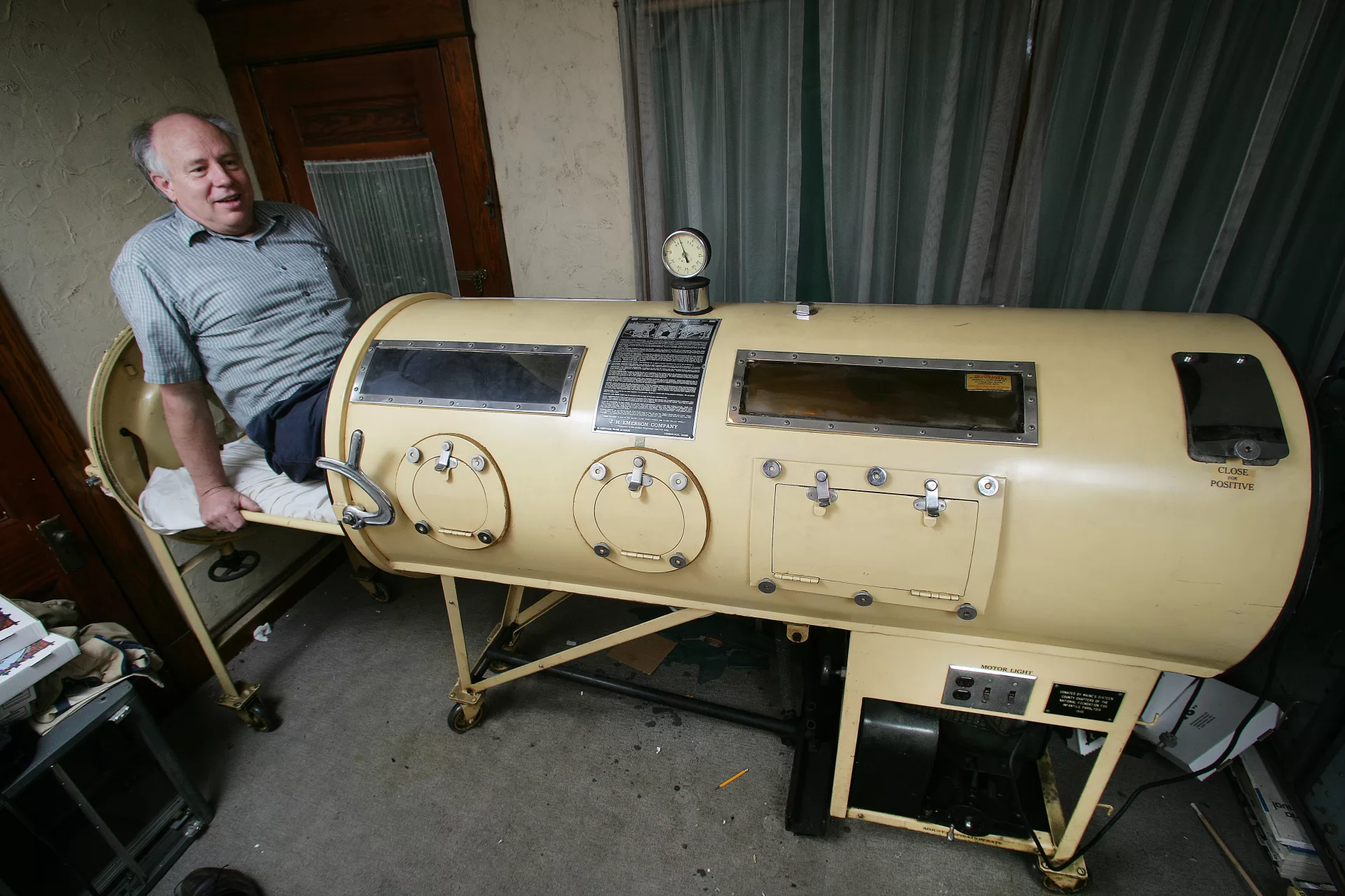
At his home on Nichols Street, Clough eases into a working iron lung, on loan from a local hospital. A member of the Association on Higher Education and Disability, Clough was an early advocate at Bates for improving the accessibility of campus buildings.
He taught the Short Term course “Experiencing Disability” in the 1990s to give students the opportunity to experience obstacles faced by people with a variety of disabilities. To prepare for the defense of an honors thesis on polio and the March of Dimes, a Bates senior spent time in the iron lung.
2015: In the classroom
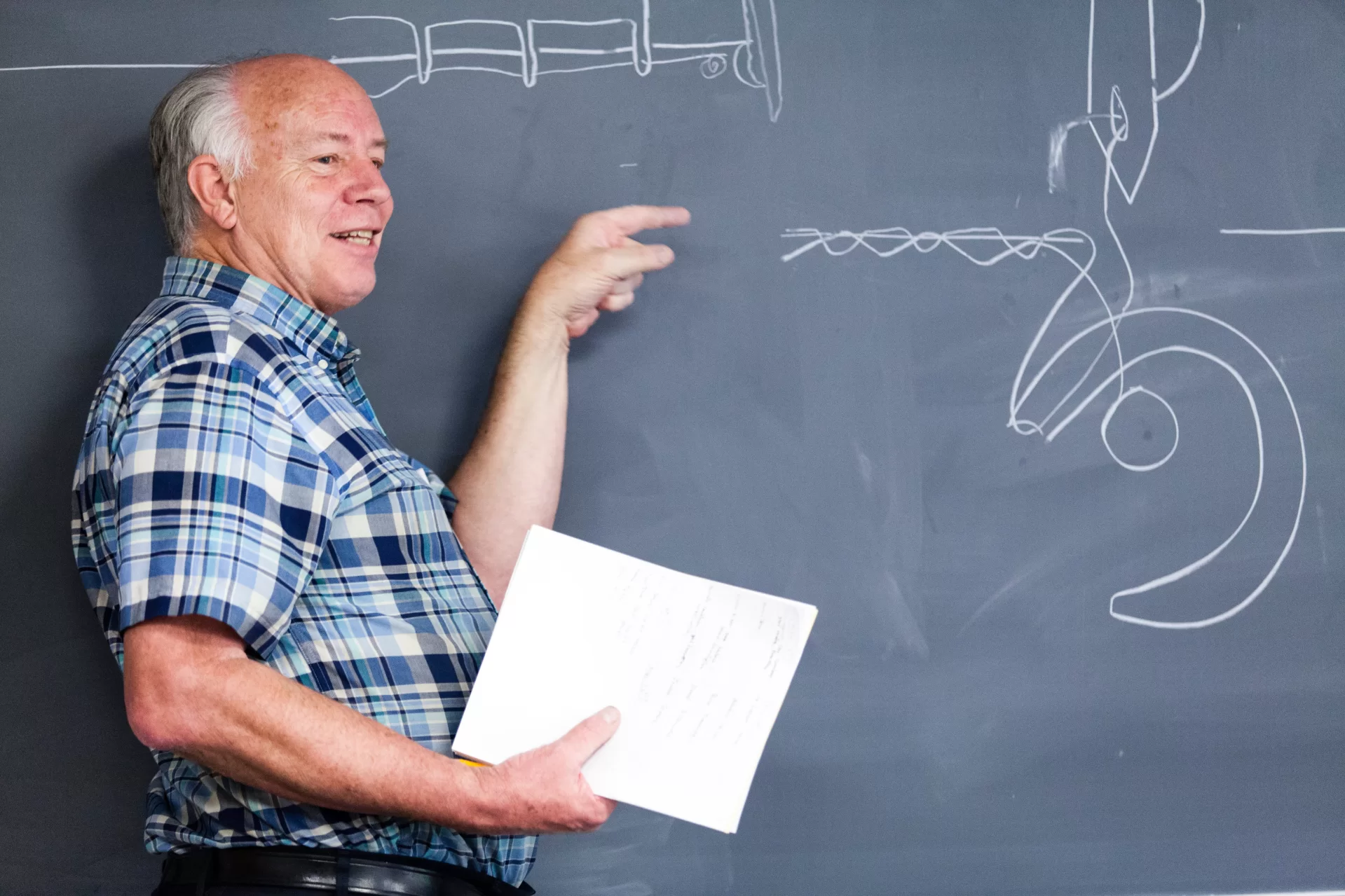
In October 2014, Clough teaches his First-Year Seminar, “Anatomy of a Few Small Machines,” in Carnegie Science Hall on the Friday of Back to Bates, which welcomed parents and families to the classroom.
2015: Time to move offices
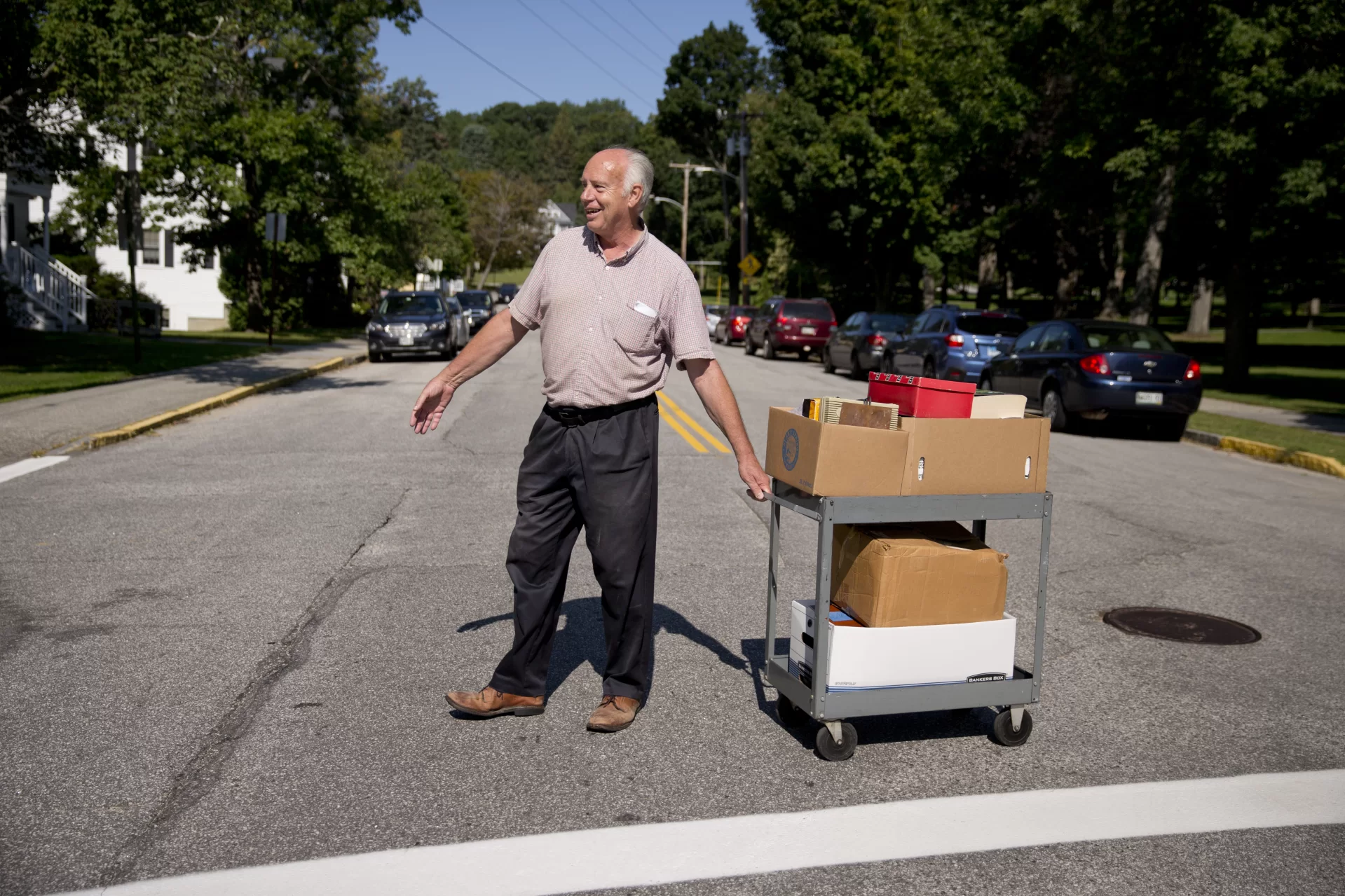
Clough didn’t drive and preferred to do anything he could do by himself.
From his perspective, asking Facility Services for help with a move would be a complete waste of human and mechanical energy. So when it came time to shift offices as his retirement drew near, he trucked all his stuff using a hand cart.
2015: ‘These envoys of beauty’
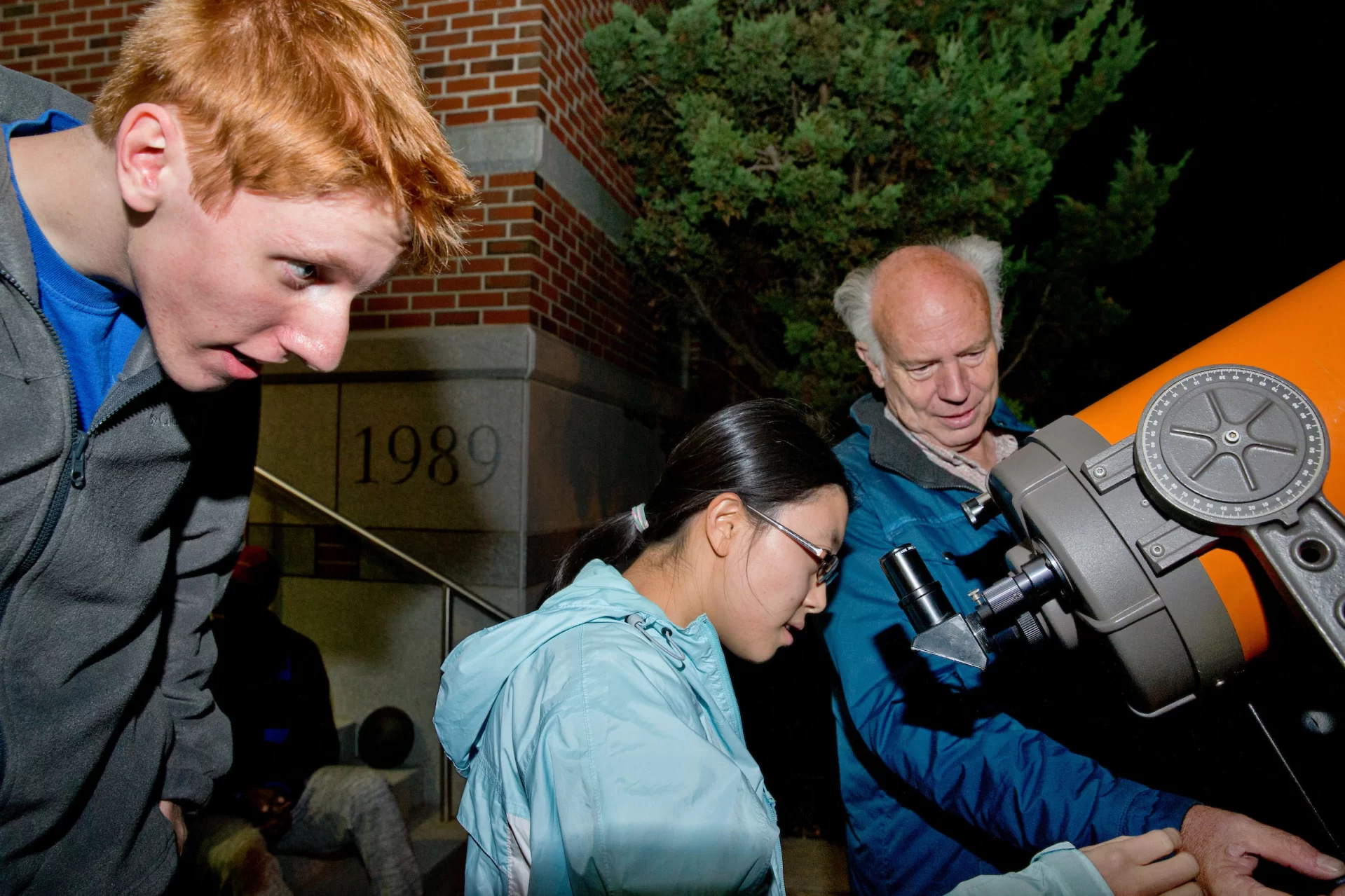
In September 2015, Clough leads passersby, including Dan Brause ’18 and Yinya Huang ’17, in viewing the blood moon, when Earth’s moon is in a total lunar eclipse, through a telescope outside Carnegie Science Hall.
Clough often set up shop outside Carnegie on clear nights, inviting visitors to stargaze and learn about important astronomical events, whether a blood moon or Mars on its closest approach to Earth in 60,000 years (in 2003). He gave planetarium shows in Carnegie Science on diverse and unexpected topics such as how astronomical factors influenced the 1944 D-Day invasion planning.
On one viewing night in February 2015, he offered a quote from Ralph Waldo Emerson to the photographer:
“If the stars should appear one night in a thousand years, how would men believe and adore; and preserve for many generations the remembrance of the city of God which had been shown! But every night come out these envoys of beauty, and light the universe with their admonishing smile.”
2016: His Retirement Party
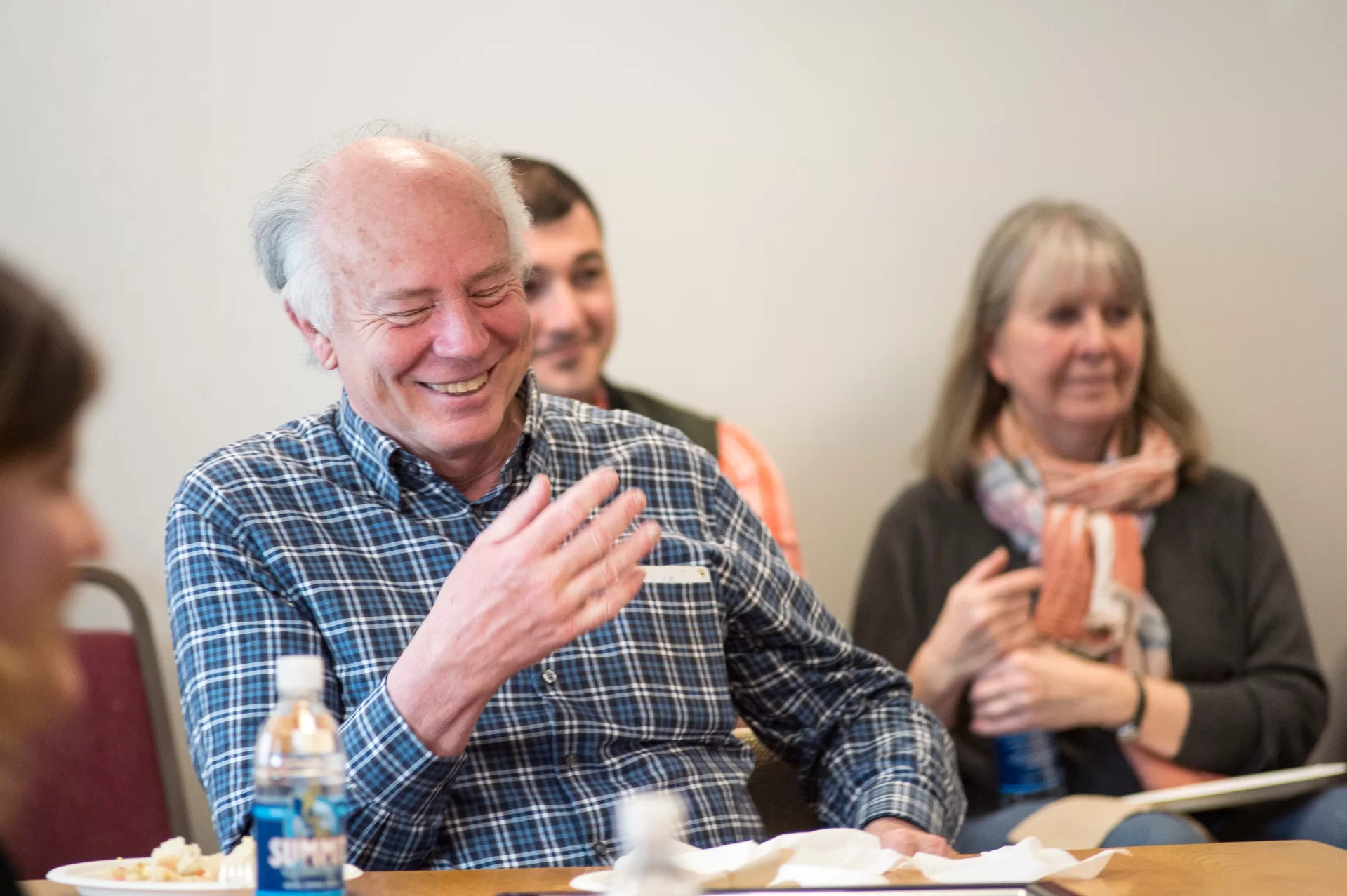
Clough laughs during a party held in Carnegie Science Hall to celebrate his retirement from the Bates faculty.
2021: Having pi at his home on Nichols Street
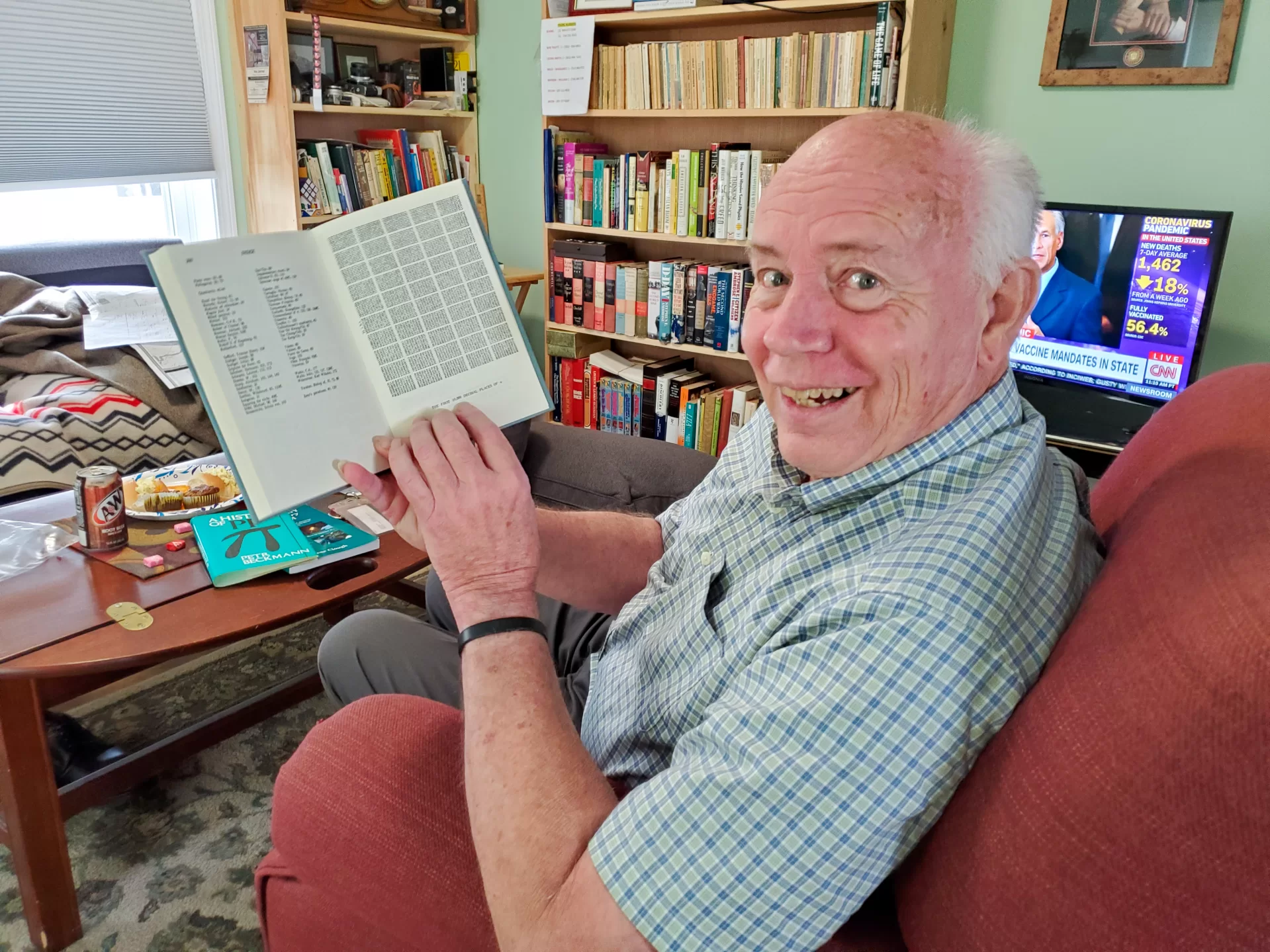
Clough holds A History of Pi, pointing out to visitors a page with pi expressed to many decimals. Even as dementia took hold, Clough could recite pi out to 50 decimals.
2021: Down to earth
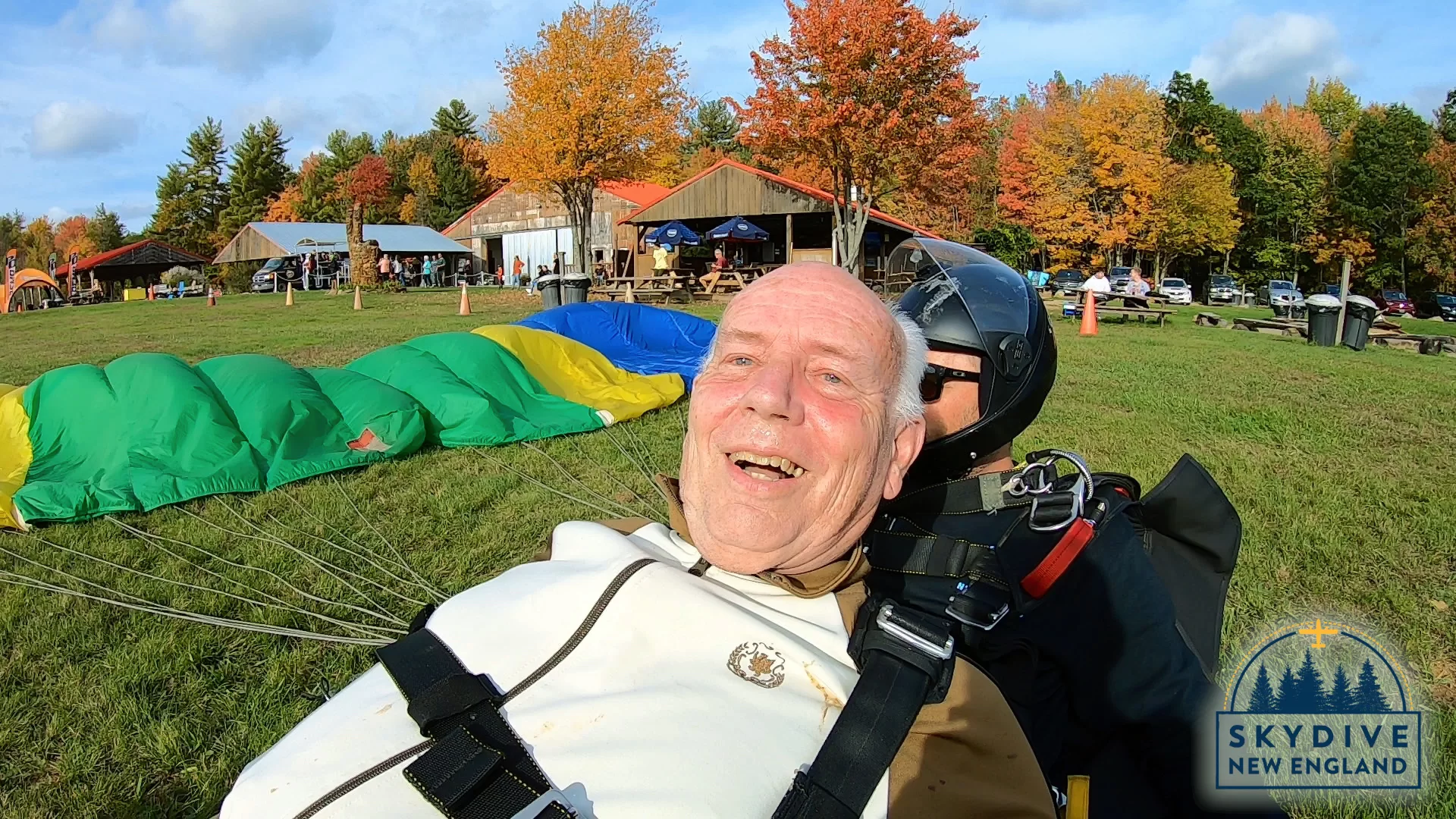
Clough smiles after completing his tandem skydive at SkyDive New England in Lebanon, Maine. As Clough battled dementia in recent years, his friends and Bates colleagues Sylvia Deschaines and Jacob Kendall found ways to keep Clough physically active and engaged — so important for someone who has age-related dementia. That’s how Clough ended up skydiving.
